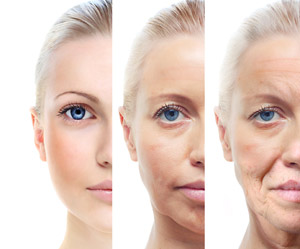Essential Oils For Insomnia
 Insomnia is defined as the inability to either fall asleep or stay asleep for any length of time.
Insomnia is defined as the inability to either fall asleep or stay asleep for any length of time.
This condition affects most people at some point in their lives, and every night millions of people around the world go to bed and struggle to get a decent night’s sleep.
Often this is because they are unable to switch off their busy minds, or because they awaken suddenly in the middle of the night and just can’t get back to sleep. Good quality sleep is vital for your overall health because it gives the mind a break from the pressures and stresses of daily life, the cells and tissues of the body are repaired, and energy levels are replenished.
Research has also shown that sleep helps to regulate our hormones and recharge the body’s immune system which protects us from infection and disease. This is why a lack of sleep can be so devastating to our health.
What causes insomnia?
There are several reasons why you might suffer from insomnia but possibly the leading cause of insomnia in today’s world is stress. Stress often leads to depression and anxiety, which are also conditions that keep you lying awake at night. Whatever the cause of your insomnia, the results are the same; you feel tired, suffer from a foggy brain, have reduced ability to cope with your day-to-day routine, develop anxiety attacks and, in more serious scenarios, severe depression.
Natural aids, such as relaxing essential oils, are a great alternative to more traditional sleeping pills that often leave you sluggish and hungover in the morning. Using aromatherapy treatments at bedtime can often help you overcome periods of insomnia in your life. There are several essential oils that are helpful with insomnia; here are some of the most popular ones;-
Lavender Essential Oil
True Lavender (Lavandula angustifolia) is an effective essential oil to help you fall asleep and stay asleep. Lavender essential oil is predominately made up of alcohols and esters and has several therapeutic properties, but is most commonly associated with relaxation. True lavender is the most popular choice of lavender available but be aware that there are other species, such as spike lavender (Lavandula latifolia) and the hybrid lavandin (Lavandula x intermedia) that have very similar properties, but are not as sedating as is true lavender.
Chamomile Essential Oil
Chamomile is another popular choice of essential oil for insomnia. There are a few species of chamomile, but Roman chamomile (Anthemis nobilis AKA Chamaemelum nobile) essential oil is the most effective one to use for insomnia. Roman chamomile is an ancient herb which has therapeutic properties that include sedative and relaxing properties. It is recommended for the treatment of insomnia, stress and nervous tension, so is a good choice to help you to relax and prepare for sleep. Combine Roman chamomile essential oil with true lavender essential oil for a more powerful treatment.
Marjoram Essential Oil
Again, you need to choose the right type of marjoram oil for insomnia as there are several plants/oils that go by the name of ‘marjoram’. Sweet marjoram (Origanum marjorana) essential oil is the only one recommended for helping with insomnia because it has a calming and sedating action on the nervous system which helps to lower blood pressure, ease nervous tension and hyperactivity, and soothe loneliness, grief and rejection – all of which can exacerbate insomnia.
Like lavender, sweet marjoram essential oil combines together with the previous oils to produce a highly effective synergistic blend for insomnia. These three essential oils can be blended in different proportions to suite your personal fragrance preferences, but however you blend them you should certainly feel the benefit of a better nights sleep.
Other Essential Oils
Other essential oils for insomnia include neroli (Citrus aurantium var. amara), rose (Rosa damascena), sandalwood (Santalum album), clary sage (Salvia sclaria), ylang ylang (Cananga odorata) and valerian (Valeriana officinalis or V. fauriei).
These essential oils all have relaxing and/or sedative properties and can be combined together to produce an effective synergistic blend. As is always the case in aromatherapy, you need to try different combinations of these oil to find what works the best for you.
In fact, most essential oils that have sedative or relaxing qualities may be used to help bring some relief to insomnia. If you know the underlying cause for your insomnia you might find that there are additional essential oils that you can combine in a blend with the oils suggested.
For example, you could combine bergamot (Citrus bergamia) or sweet orange (Citrus sinensis) in a depression-related insomnia blend, since these essential oils have an uplifting effect on the emotional system whilst being relaxing to the body. Of course you must visit your doctor for a medical check if you suddenly begin to suffer from insomnia, since there may be an underlying illness that needs treating.
How to use essential oils for insomnia
You can use all of these essential oils in a number of ways to help you deal with insomnia. Here are a few suggestions:
- Add the appropriate essential oils to a warm bath before you go to bed. Make sure your bath is not too hot and add just 6 to 8 drops in total of your essential oils to the bath water. You can also add a suitable essential oil to a blend in a bubble bath or bath oil.
- Use your essential oils in an aromatherapy diffuser just before you go to bed. You can use either an electric diffuser or a candle aromatherapy diffuser, but remember not to leave a candle diffuser burning all night. This is a good method for helping a child fall naturally to sleep because the essential oil used may become associated with bed time and be a familiar comfort.
- Blend a massage oil and persuade your partner to give you a mini-massage just before bedtime. The act of massage naturally helps your body to relax and “switch off” from the day’s routines.
- Add a suitable essential oil blend to a water spritzer, shake it well, and spray some around your bedroom avoiding polished surfaces. Spray a small quantity of it onto your pillow just before you go to sleep – using a water-based spritzer instead of applying an undiluted essential oil directly to your pillow will not stain or mark your bed linen. This a great way to incorporate aromatherapy into your bedtime routine and prepare yourself for sleep!
Be sure to take a good look at your life to see if there are any underlying causes that may be creating deep-seated anxiety or stress, and tackle these issues to also help eradicate your insomnia. Using essential oils and aromatherapy as part of your bedtime routine will help you to relax and prepare for sleep – and leave you better equipped for the next day’s challenges.
Copyright © Quinessence Aromatherapy Ltd 2021. Written by Geoff Lyth

 If you prefer your essential oils ready-blended, try our
If you prefer your essential oils ready-blended, try our 















